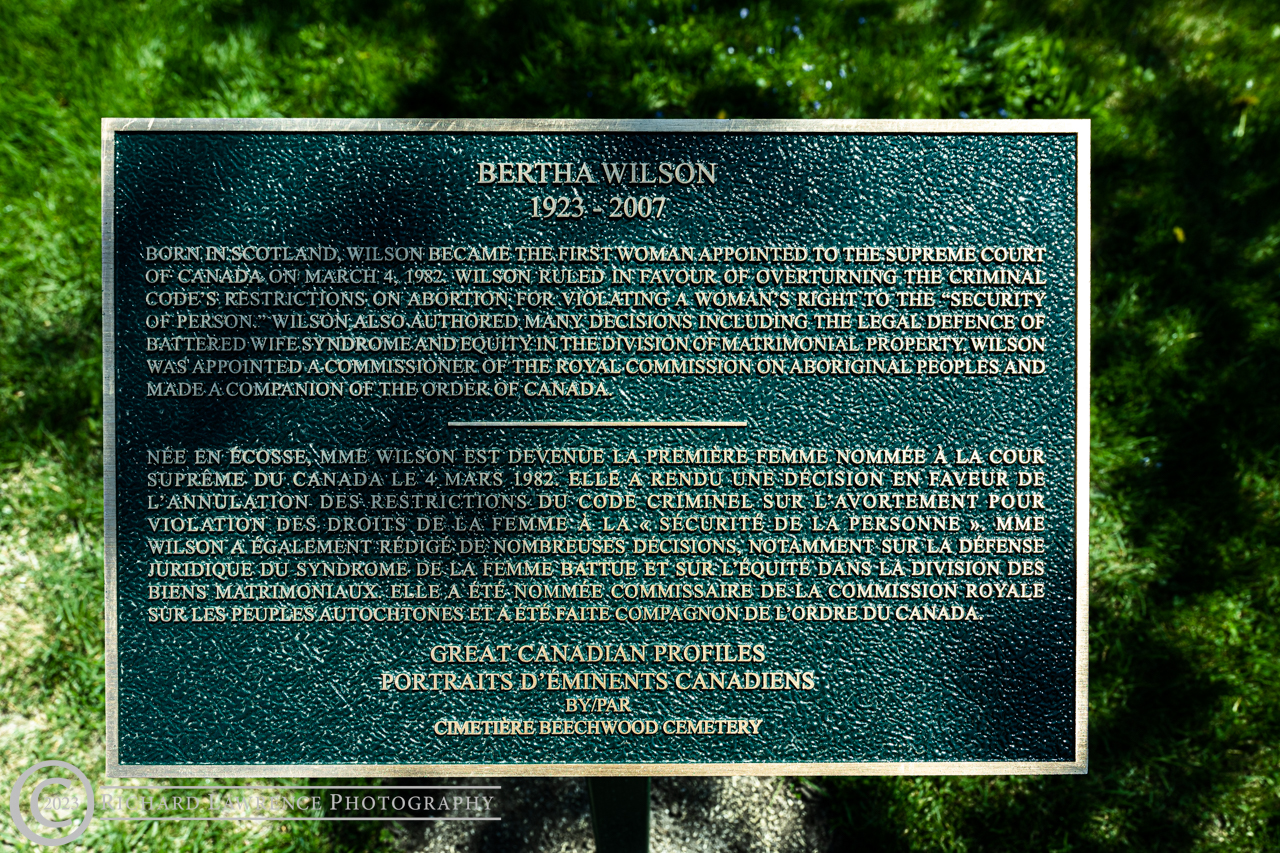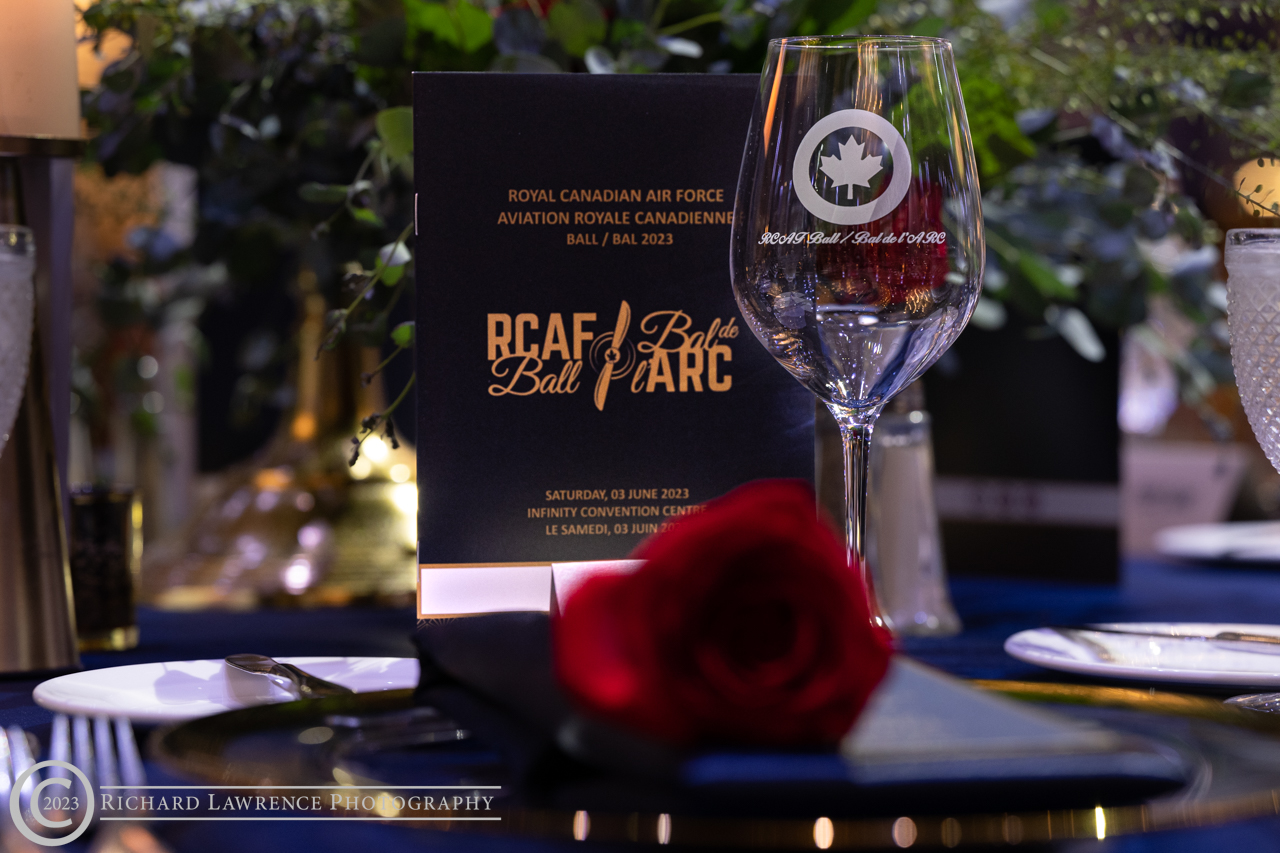So, the question is, who is Bertha Wilson and why is she getting a plaque? Although unknown to many of us, Bertha Wilson was a significant presence within the Canadian justice system, born and educated in Scotland but emigrating to Canada in 1949. She practiced law for many years in several capacities but her claim to historic fame is that she was the first female judge appointed to the Supreme Court of Canada and her decisions there.
One of her landmark decisions came in R vs Morgentaler in which Dr. Henry Morgentaler argued for women’s rights to abortion and had been in court several times where his guilty verdicts were always vacated on appeal. Morgentaler argued that the current laws were unconstitutional under Section 7 of the Charter of Rights and Freedoms in that they violated a woman’s right to “life, liberty, and security of person”. The court agreed with Morgentaler and his appeal won 5-2.
In her opinion striking down the law, Bertha Wilson wrote,
“The decision of a woman to terminate her pregnancy falls within the class of protected decisions [because it will have] profound psychological, economic and social consequences for the pregnant woman … The right to reproduce or not to reproduce … is properly perceived as an integral part of modern woman’s struggle to assert her dignity and worth as a human being … The purpose of [section 251] is to take the decision away from the woman and give it to a committee.”
The plaque dedication ceremony was held at Beechwood Cemetery on May 14th, 2023, appropriately Mothers’ Day, and attended by only a few individuals. In attendance was the Right Honorable Beverly McLachlin, former Chief Justice of the Supreme Court and the first woman to hold that position, the Honorable James McPherson (Court of Appeal for Ontario), Mary Lennox Hourd (painter of Bertha Wilson’s official portrait) and former Prime Minister Joe Clark.
Ms. McLachlin spoke first reminiscing about her time on the Supreme Court with Bertha. McLachlin was the third female appointed to the Court and she remembers as she sat down on the first day, Wilson leaning over to her and saying, “Three down and six to go!” referring to the number of male justices on the Supreme Court. She also spoke of her as a great feminist and how she changed to law, along with her recognition of the Charter of Freedoms and Rights. She spoke of her as a great scholar and how she eloquently wrote about free speech. Also noted was her love and interest in criminal law and wrote about many criminal law decisions that helped shape criminal law and rights while also recognizing public rights.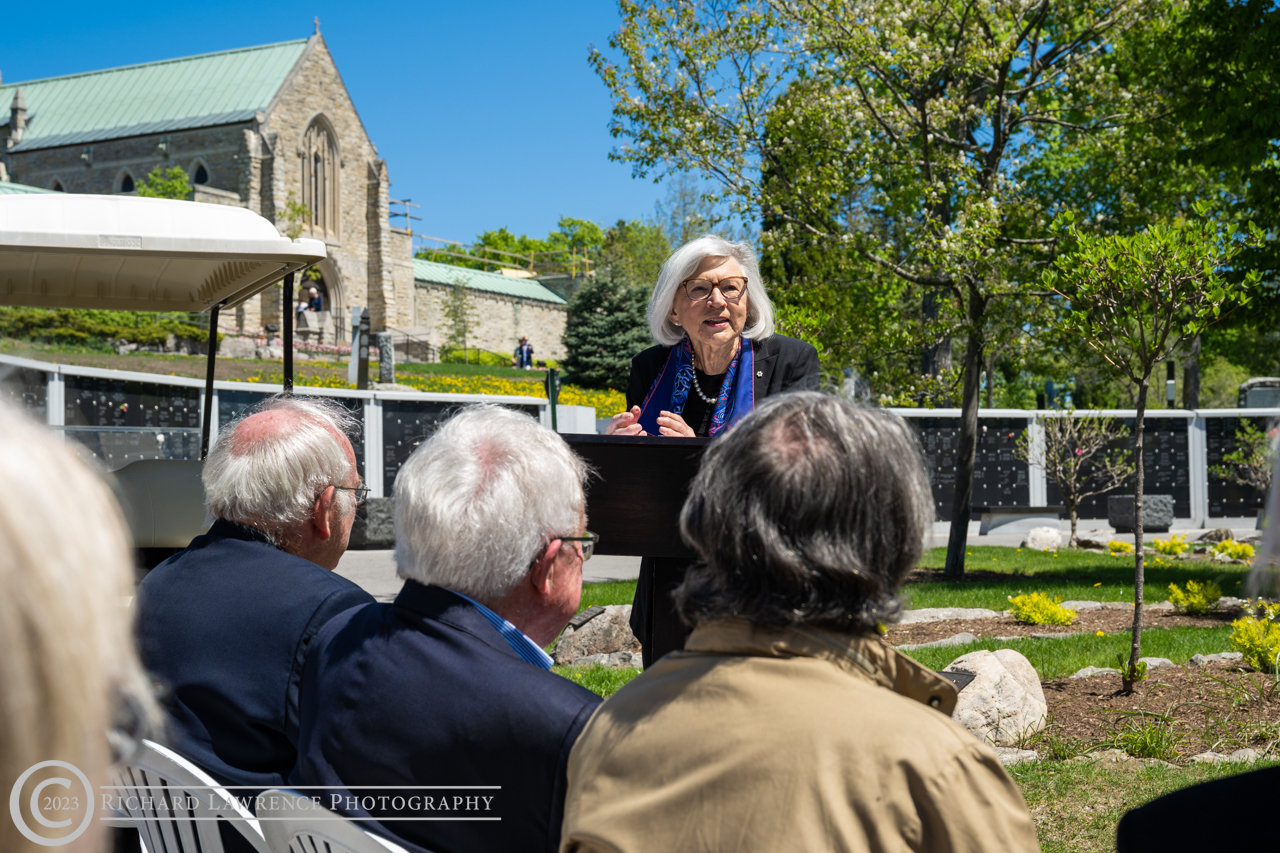
When the Honorable James MacPherson spoke, he spoke more of her personal side rather than professional. He noted how she now rested with the great love of her live, her husband John. His first interaction with Wilson was when MacPherson was moving Charter Appeals for Saskatchewan through the Supreme Court. His opinion was that she was tough and that he did not do well. Later MacPherson came to work with Chief Justice Brian Dixon and found her much more amenable. He and his wife eventually made close ties with the Wilsons and spent much personal time together, including New Year’s Eve parties where John would inevitably be on the doorstep with a lump of coal (Scottish tradition) and a bottle of champagne.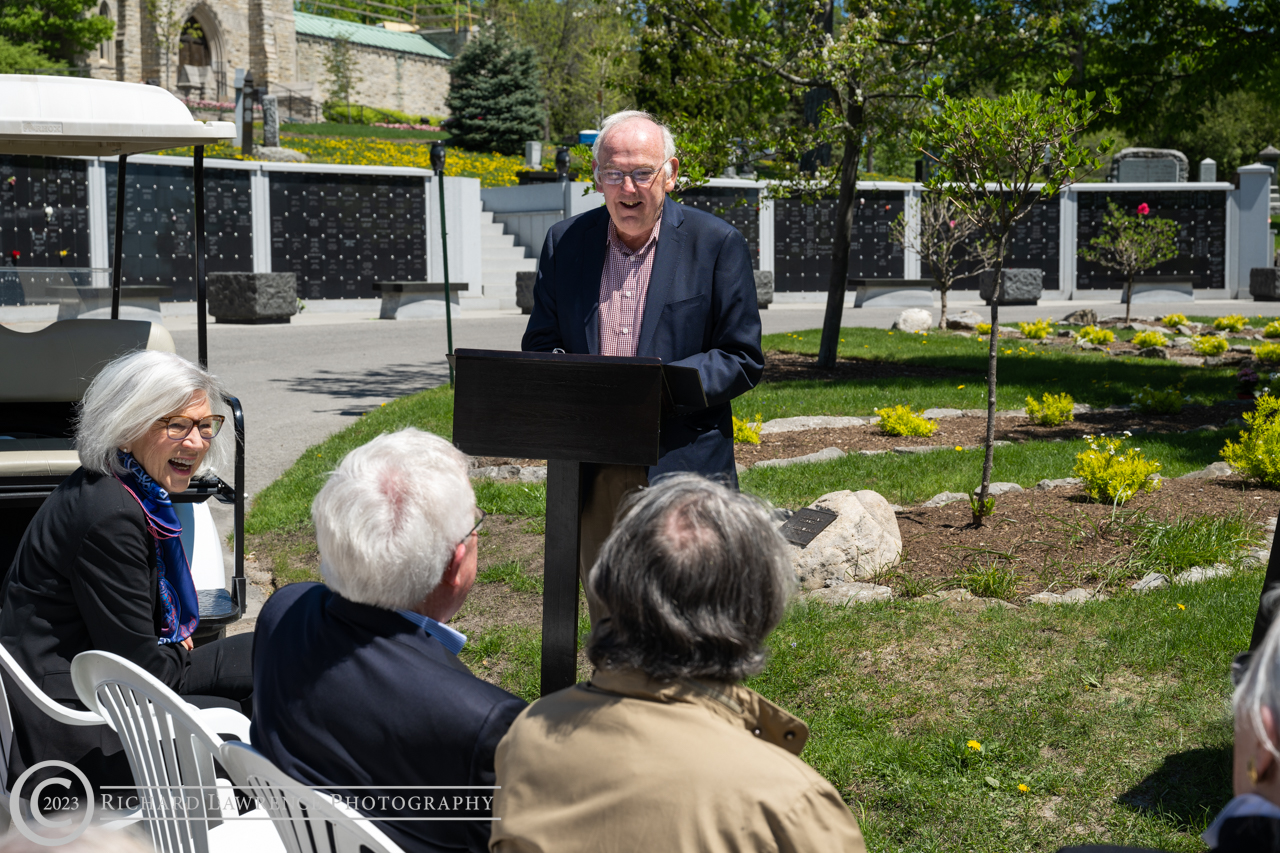
On a final note, he mentioned a speech given by Bertha Wilson at Osgoode Hall, (when he was Dean), which was filled to overcapacity. The speech was entitled “Will Women Judges Make a Difference” and it was one of the greatest speeches that he ever heard.
With the platitudes finished, Ms. McLachlin and Mr. MacPherson stood behind the plaque and lifted the cover to unveil the plaque. After a few minutes of reading the plaque and personal memories shared, attendees migrated to the main building for some refreshments.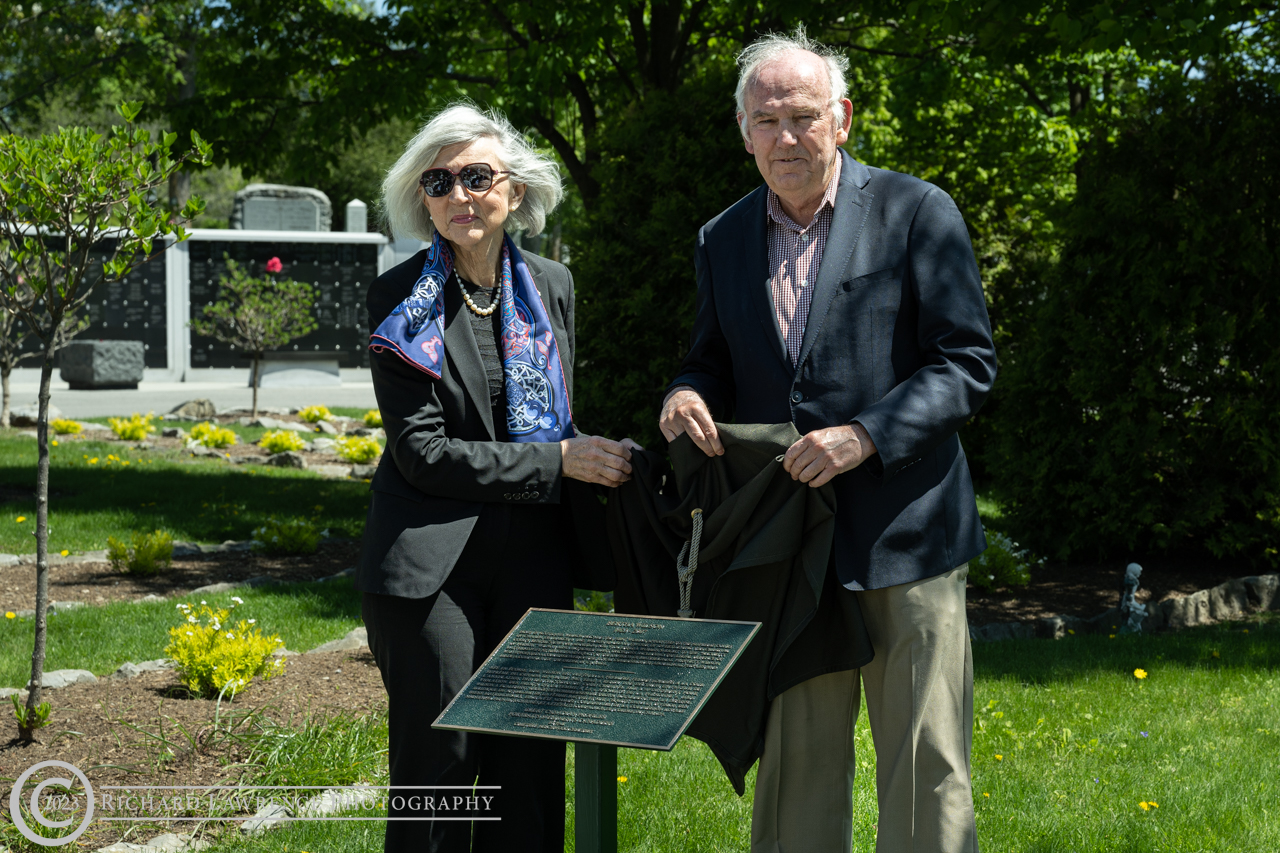
To see all the pictures from the event, CLICK HERE
============================================================
